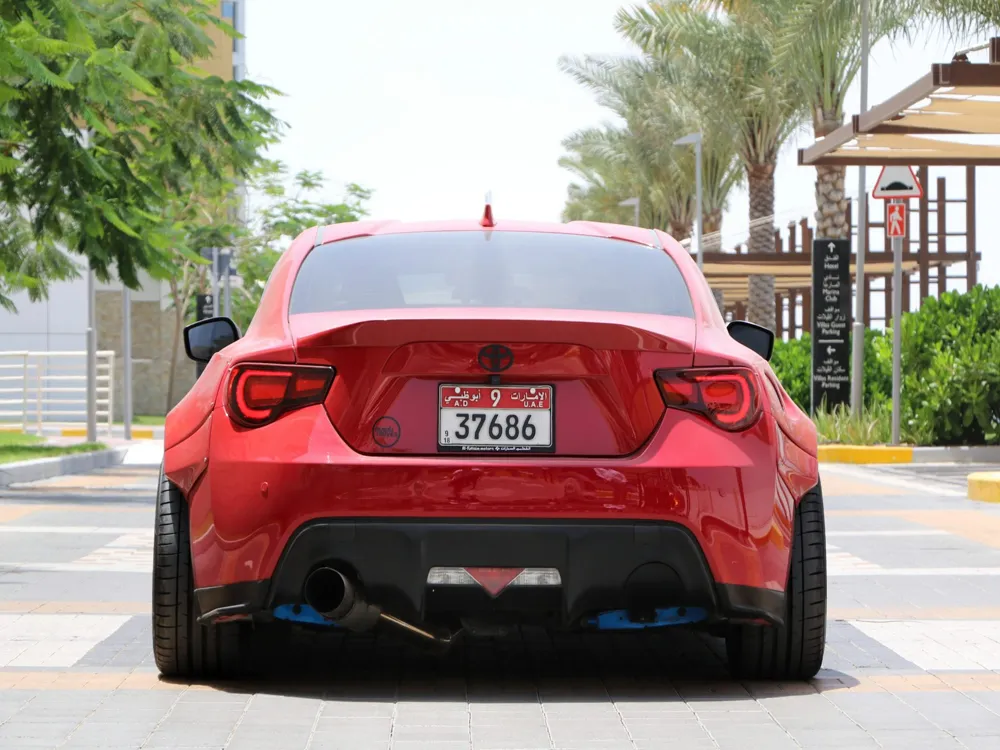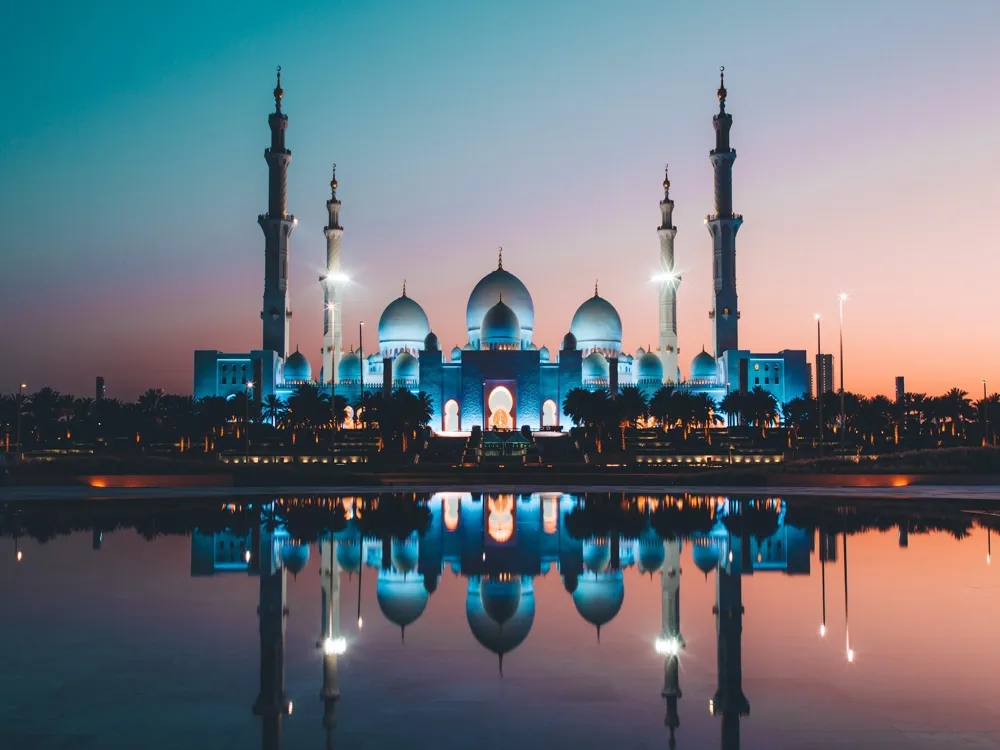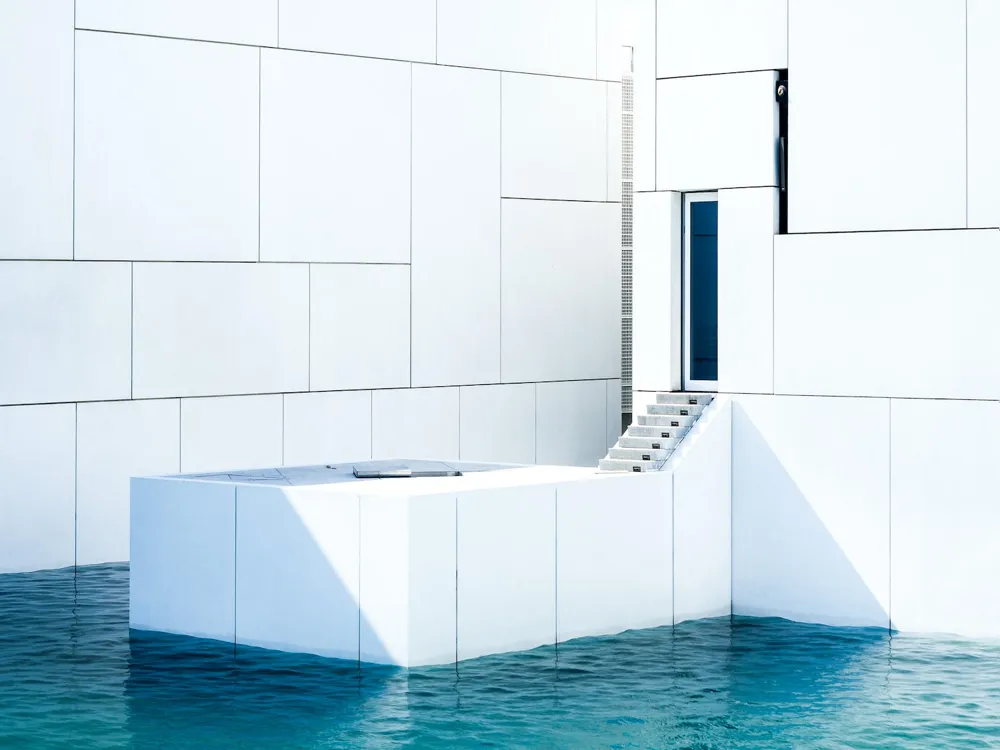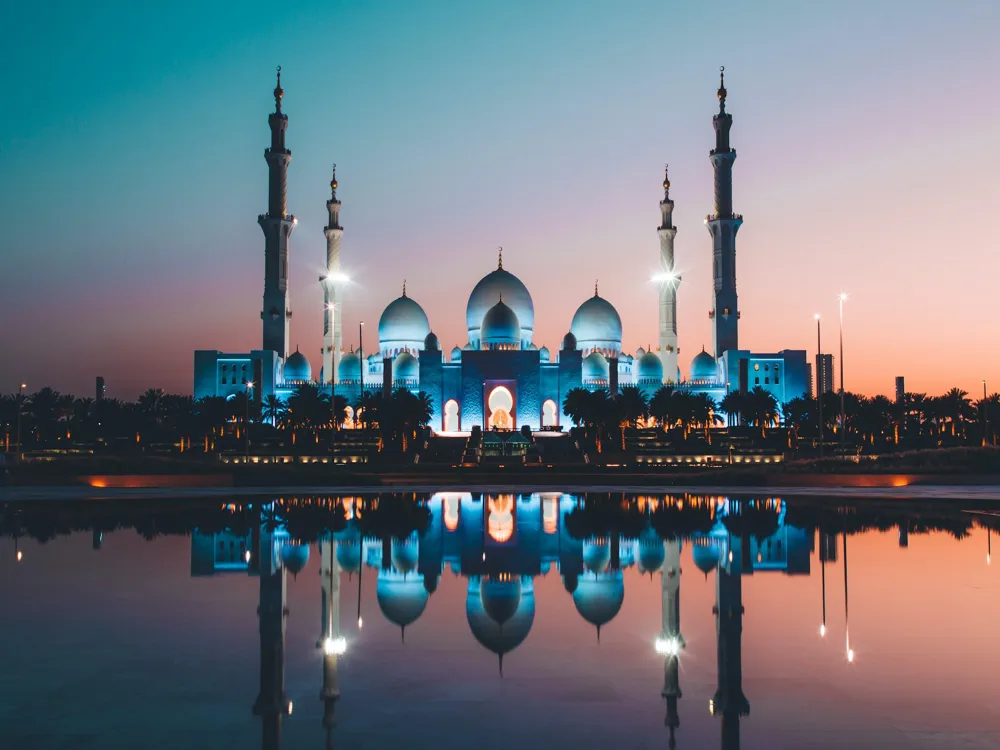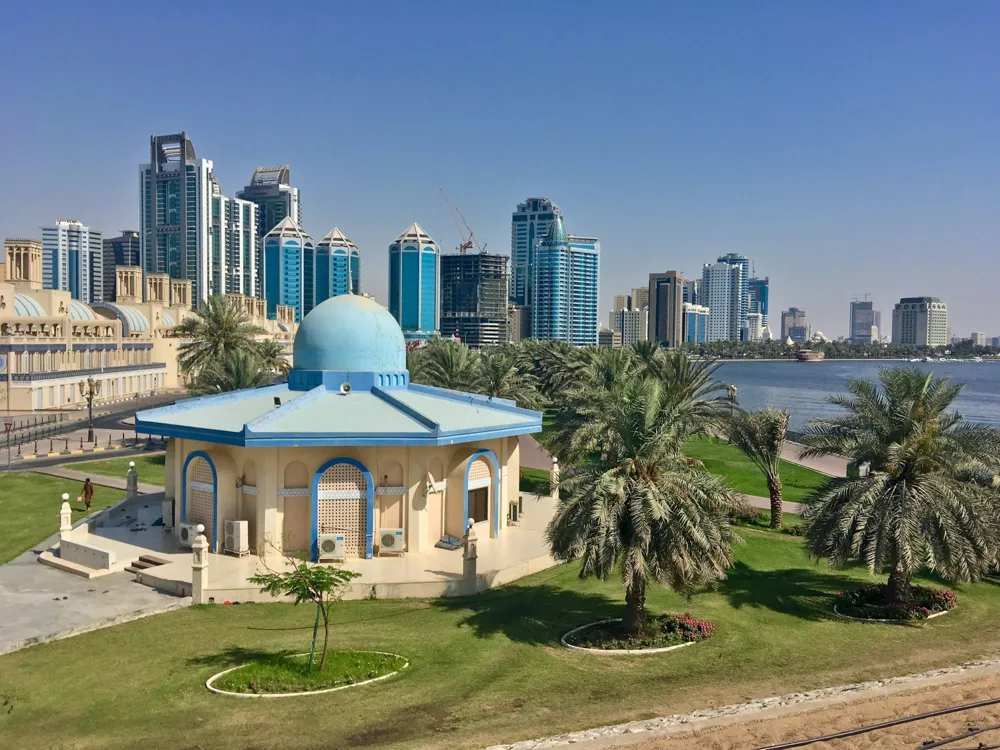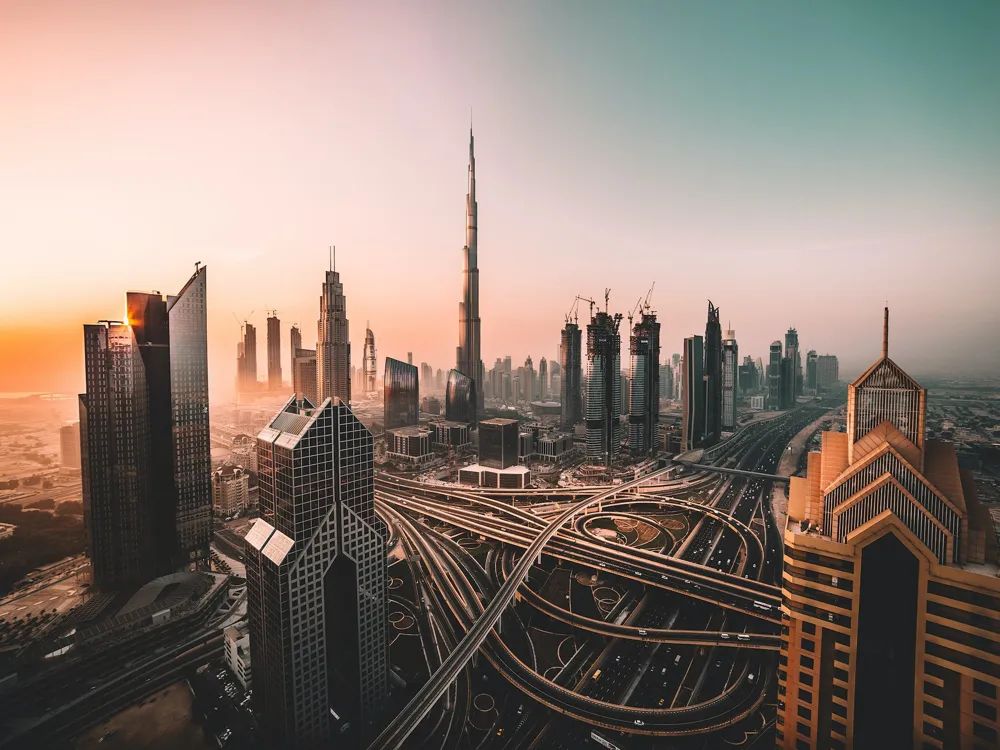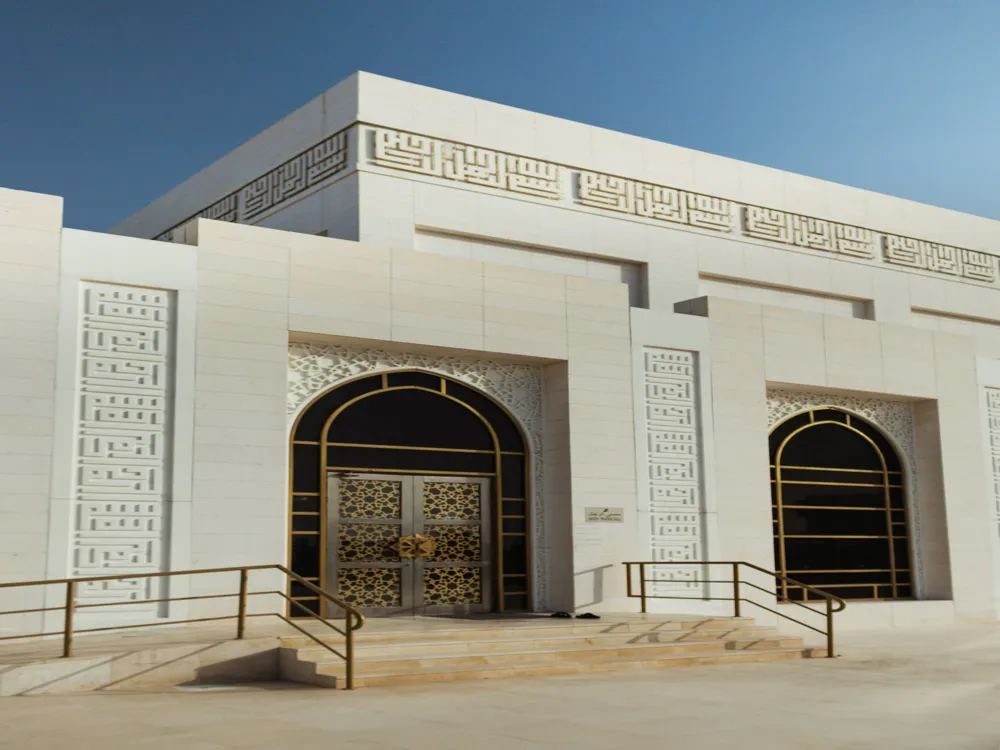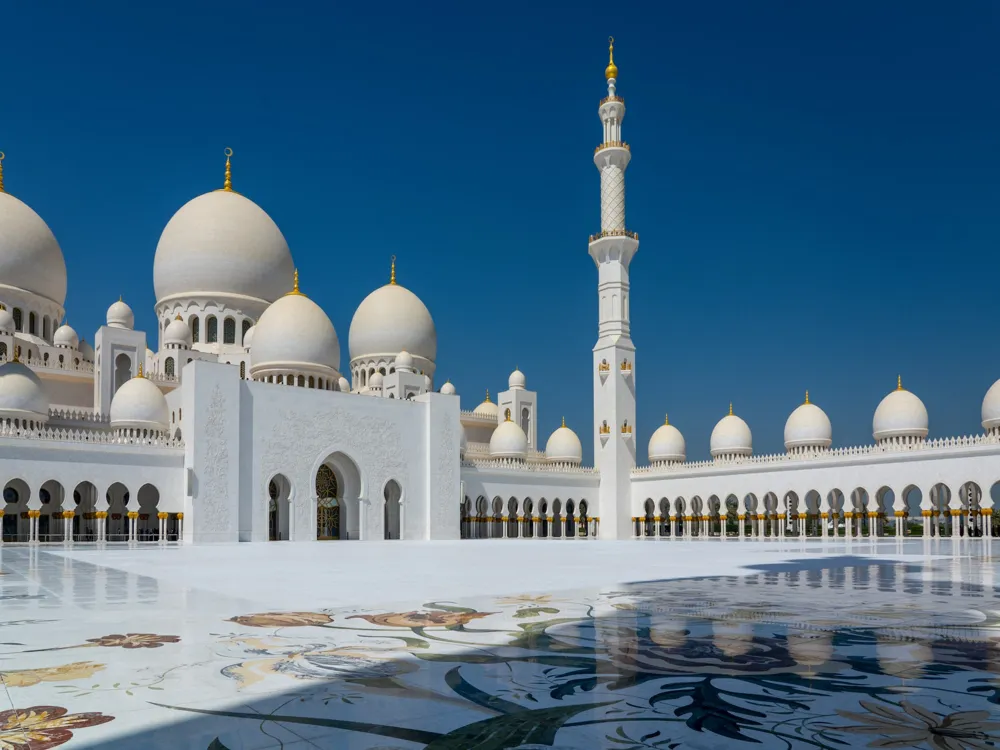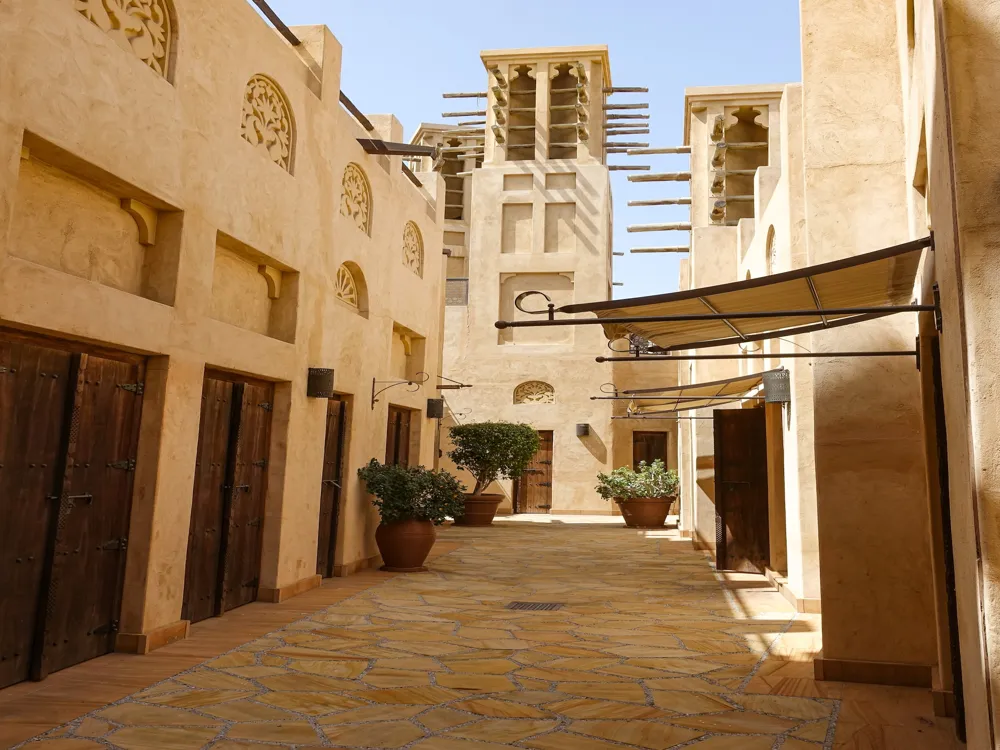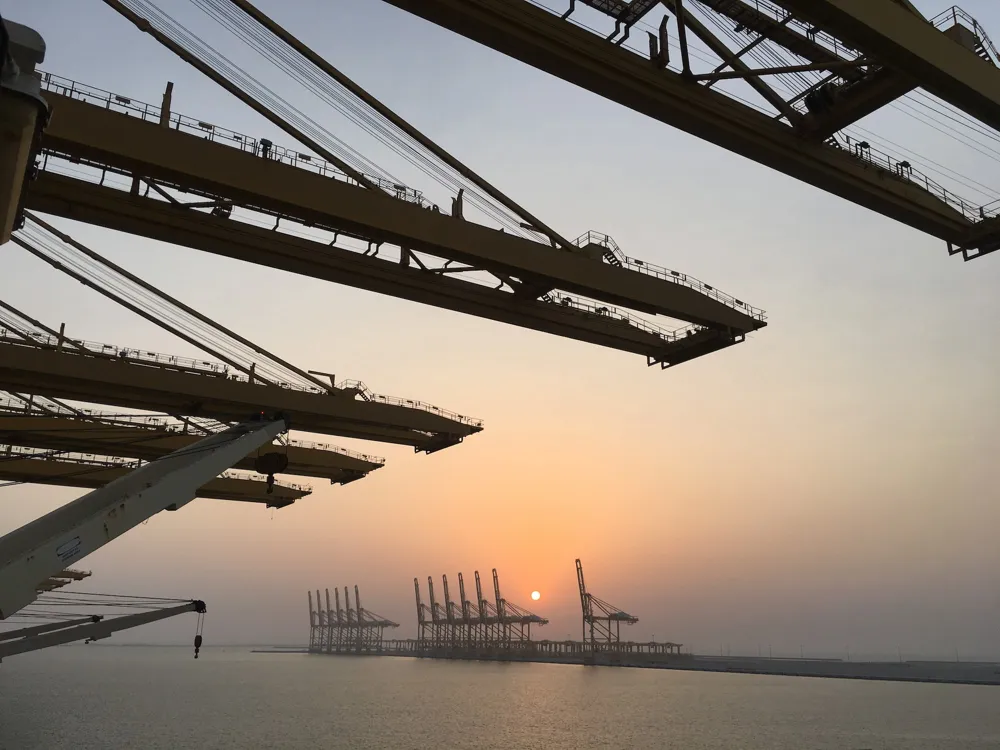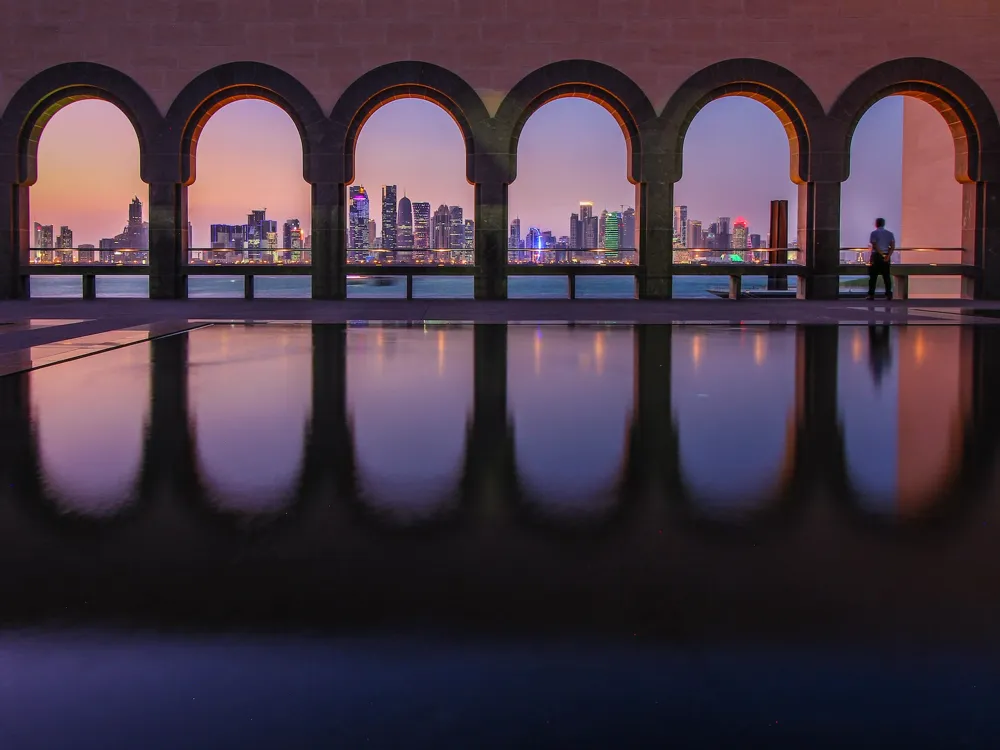Abu Dhabi, the capital city of the United Arab Emirates, is a vibrant mix of cultural heritage and modern sophistication. Nestled on an island in the Persian Gulf, it has grown from a small fishing village to a bustling metropolis and a beacon of prosperity and stability in the Middle East. Abu Dhabi is renowned for its year-round sunshine, stunning beaches, and lush green parks, alongside a rapidly growing skyline of skyscrapers and world-class luxury hotels. The city's culture is deeply rooted in the Islamic traditions of Arabia, combined with an international influence that has grown with its community. This cultural fusion is evident in everything from the food and festivals to the courteous and welcoming nature of the Emirati people. Abu Dhabi is not just the political and industrial center of the UAE but also a rich cultural hub with museums like the Louvre Abu Dhabi bringing art and history from around the world to the Arabian Gulf. For those seeking adventure, Abu Dhabi offers a range of activities from desert safaris in the surrounding sandy dunes to water sports in the warm waters of the Gulf. The city's commitment to sustainability is evident in projects like Masdar City, a pioneering eco-city, and the numerous parks and green spaces that provide a tranquil escape from the urban landscape. With its blend of traditional Arabian hospitality and a forward-thinking vision, Abu Dhabi stands as a shining example of a modern city living in harmony with its cultural heritage. Abu Dhabi's architecture is a spectacular display of modern design fused with traditional elements. The city's skyline is a mix of towering glass skyscrapers, traditional mosques, and innovative structures that push the boundaries of contemporary design. This juxtaposition of old and new reflects Abu Dhabi's journey from a modest fishing village to a global metropolis. The Sheikh Zayed Grand Mosque, a masterpiece of Islamic architecture, epitomizes this blend. With its 82 domes, over 1,000 columns, and 24-carat gold gilded chandeliers, it's a marvel of modern construction that pays homage to traditional Islamic design. The mosque can accommodate over 40,000 worshippers, making it one of the largest in the world. In contrast, the Louvre Abu Dhabi, designed by renowned architect Jean Nouvel, symbolizes the city's commitment to cultural diversity and global outreach. Its unique dome, made of thousands of geometric stars, creates a 'rain of light' effect, reminiscent of the overlapping palm trees in the UAE's oases. Abu Dhabi's skyline is also marked by towering skyscrapers like the Etihad Towers and the Capital Gate building, known for its striking lean. These modern marvels embody the city's economic growth and its status as a hub of commerce and tourism. The skyline of Abu Dhabi is not just a collection of buildings; it's a testament to the city's ambition, creativity, and respect for its cultural roots. While Abu Dhabi is a modern city, it's important to respect local customs regarding dress. Visitors should dress modestly, especially when visiting religious sites like the Sheikh Zayed Grand Mosque. Women should cover their shoulders and knees, and men should avoid wearing shorts and sleeveless shirts in public places. The best time to visit Abu Dhabi is from October to April when the weather is cooler and more pleasant. The city's outdoor activities and events are best enjoyed during these months. Visitors should be mindful of local customs and traditions. Public displays of affection are frowned upon, and during the holy month of Ramadan, eating, drinking, or smoking in public during daylight hours is prohibited. Arabic is the official language, but English is widely spoken. The currency is the UAE Dirham (AED), and credit cards are widely accepted. Abu Dhabi has a well-developed transportation system. Taxis are plentiful and affordable, and the city also has a reliable public bus network. Renting a car is another option for those who prefer to explore at their own pace. Abu Dhabi is well-connected by air, with the Abu Dhabi International Airport serving as a major hub for international and domestic flights. The airport is just a 30-minute drive from the city center. For those traveling from Dubai, Abu Dhabi is approximately a 90-minute drive away. Regular bus services also connect Abu Dhabi to other cities in the UAE. For an opulent experience, visitors can opt for a private car or limousine service, which is readily available at the airport and throughout the city. Read More:Overview of Abu Dhabi
Architecture of Abu Dhabi
Tips When Visiting Abu Dhabi
Dress Appropriately
Best Time to Visit
Respecting Local Customs
Language and Currency
Transportation
How To Reach Abu Dhabi
Corniche Beach, Abu Dhabi
Abu Dhabi
₹ 23,000 onwards
View abu-dhabi Packages
Weather :
Tags : Beach
Timings : 8:00 AM - 8:00 PM
Time Required : 1 - 2 hrs
Entry Fee : No Entry Fee
Planning a Trip? Ask Your Question
Abu-dhabi Travel Packages
View All Packages For Abu-dhabi
Top Hotel Collections for Abu-dhabi

Private Pool

Luxury Hotels

5-Star Hotels

Pet Friendly
Top Hotels Near Abu-dhabi
Other Top Ranking Places In Abu-dhabi
View All Places To Visit In abu-dhabi
View abu-dhabi Packages
Weather :
Tags : Beach
Timings : 8:00 AM - 8:00 PM
Time Required : 1 - 2 hrs
Entry Fee : No Entry Fee
Planning a Trip? Ask Your Question
Abu-dhabi Travel Packages
View All Packages For Abu-dhabi
Top Hotel Collections for Abu-dhabi

Private Pool

Luxury Hotels

5-Star Hotels

Pet Friendly




